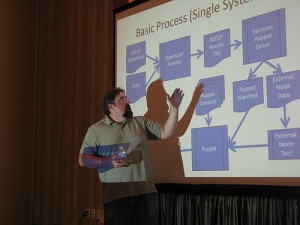Online courses for Linux security can provide you with the information necessary to keep data and files safe. Linux is a stable operating system, but that will not stop hackers from trying. That is why knowledge is essential.
Coursework Overview
Linux classes explain different types of attacks: wireless, physical, social and technical. You will also learn different types of hacking techniques, how to scan a system and host hardening. Other topics are going to be about network access security, security policy, access control and explaining technical attacks.
Basic Topics
Students will learn about Tripwire, viruses and Linux, detecting an intrusion and preventing further attacks and facts about obsolete or benign accounts. These courses will also explain how hackers exploit badly configured and insecure programs, outdated software, open network ports and weak passwords.
Hacking Topics
The subjects in these modules include ports at risk, remote hacking, TCP pinging and scanning and identification. By the end of the course you will become familiar with zone transfers, DNS reverse-lookups, regional internet registries and domain registrars.
Access Control
The subjects include logging environment, protocol switches in the kernel, account controls and useful tools. Other topics are about user startup files, warning banners, login simulators and protect files with GPG.
Objectives of These Courses
After completing the course, students will learn how to keep their networks safe from hackers. At the same time, they learn how to keep users from doing something that will damage the system. Graduates learn how to apply solutions to different kinds of problems.
Security Policy Subjects
You will study technical security policy samples, administrative security policies and why they are essential. Additional subjects are going to focus on standards and regulations and network access security. Other topics are going to be about protecting network connections – SSH2, egress filtering, tunneling through firewalls and restricting remote user access. SSH authentication is also explained.
Requirements
Students should have some experience in Linux systems administration. Knowledge of networking is also necessary. You also need to have a consistent Internet connection.
Other Information
Graduates of Linux security programs can find different types of jobs in the computer industry. After graduating you can be a computer systems professional. These courses can take several days to complete.
Online courses for Linux security may be free or require payment. Some websites and schools offer certification. Having one makes it easier for a graduate to get a job as a Linux expert.
